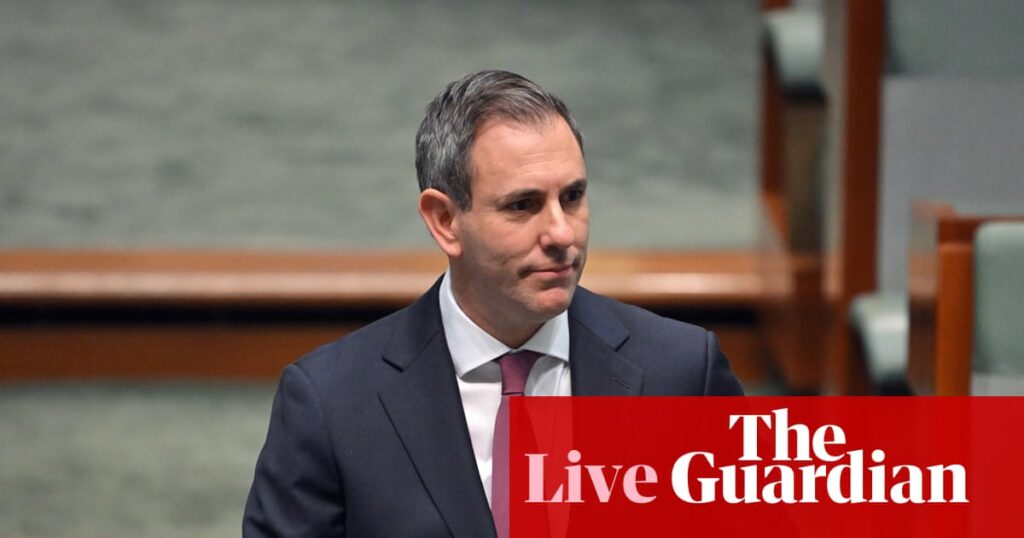
Jim Chalmers on AI: Balancing Optimism with Caution
In a recent press conference, Australian Treasurer Jim Chalmers expressed his optimism about artificial intelligence (AI) being a potential force for good, while also acknowledging the inherent risks associated with the technology. As he prepares for his upcoming productivity roundtable, Chalmers emphasized the importance of treating AI as an enabler rather than an adversary in the economic landscape.
Chalmers stated,
“I’m optimistic that AI can be a force for good, but I’m also realistic about the risks. It is not beyond us, in my view, to maximise the opportunities of AI while we manage the risks the best that we can.”
He further highlighted the need for empowering workers with the right skills to ensure that industries and individuals benefit from technological advancements rather than fall victim to them.
This announcement comes at a time when AI is increasingly becoming a focal point of economic discussions globally. The potential of AI to revolutionize industries is immense, yet the challenges it poses, such as job displacement and ethical concerns, require careful navigation.
Col Joye: Remembering a Rock’n’Roll Pioneer
Australia mourns the loss of Col Joye, a trailblazer in the rock’n’roll music scene, who passed away at the age of 89. Joye, born Colin Jacobsen, was the first Australian rock’n’roll musician to achieve a number one hit on the national charts. His brother and former bandmate, Kevin Jacobsen, confirmed his passing on Tuesday night.
Joye’s musical journey began in 1957 with the KJ Quintet in Sydney, which included his brothers Kevin and Keith. The band, later known as Col Joye and the Joy Boys, achieved significant success with hits like “Bye Bye Baby” and “Oh Yeah Uh Huh,” the latter being the first rock song recorded and produced in Australia to top the national charts.
Beyond his music career, Joye played a pivotal role in the entertainment industry, notably signing the Bee Gees to Joye Music after witnessing their performance in 1961. His contributions were recognized with an appointment as a Member of the Order of Australia in 1981 and an induction into the ARIA Hall of Fame in 1988.
Spike in E-Bike Collisions in Victoria Sparks Crackdown
Victoria has recorded an alarming 82% increase in e-bike collisions, prompting a crackdown on non-compliant and overpowered bikes. In 2024, there were 144 e-bike collisions, a significant rise from 79 the previous year. Early data for 2025 indicates that the trend is continuing, with 113 incidents reported in the first seven months alone.
According to Glenn Weir, Road Policing Assistant Commissioner,
“90% of the time e-bike crashes involved bikes that were overpowered, non-compliant with safety regulations or riders who had flouted road rules.”
He attributed the rise in accidents to community confusion over e-bike regulations and stressed the responsibility of riders to adhere to power and speed limits.
The crackdown, launched on Wednesday, targets illegal e-bikes in Melbourne’s CBD. Victoria Police aims to mitigate the risks associated with e-bikes by ensuring compliance with existing laws, including wearing helmets and maintaining appropriate bike specifications.
Broader Context and Implications
The developments in AI, music, and transportation reflect broader societal trends and challenges. As AI continues to evolve, the balance between innovation and regulation will be crucial in harnessing its benefits while mitigating risks. Meanwhile, the legacy of pioneers like Col Joye underscores the enduring impact of cultural icons on national identity and the arts.
The rise in e-bike collisions highlights the growing pains associated with integrating new technologies into everyday life. As cities adapt to increasing numbers of e-bikes, clear regulations and public awareness will be essential to ensure safety and harmony on the roads.
Looking ahead, these issues will require ongoing dialogue and collaboration among policymakers, industry leaders, and the public to navigate the complexities of technological and cultural change.





